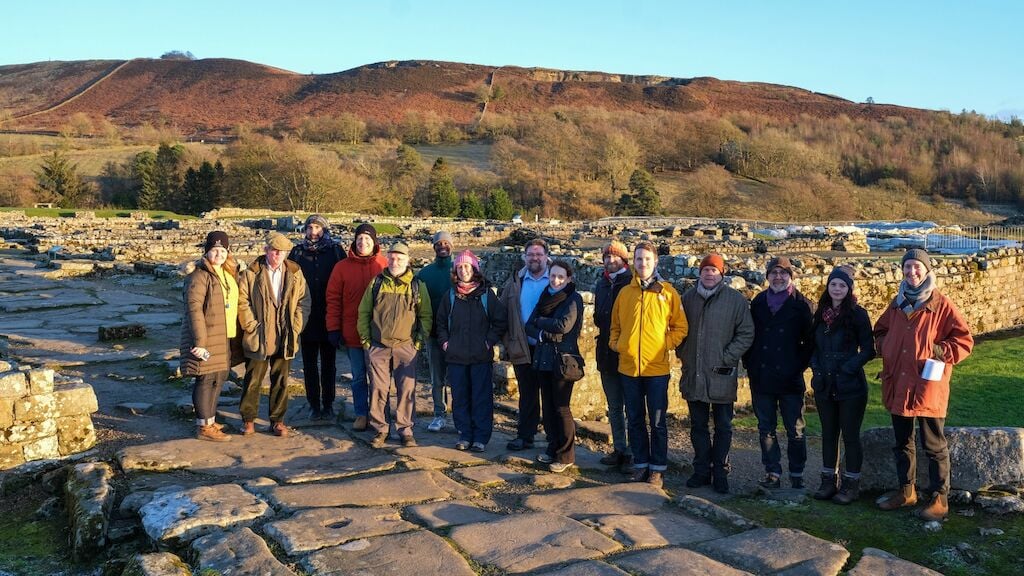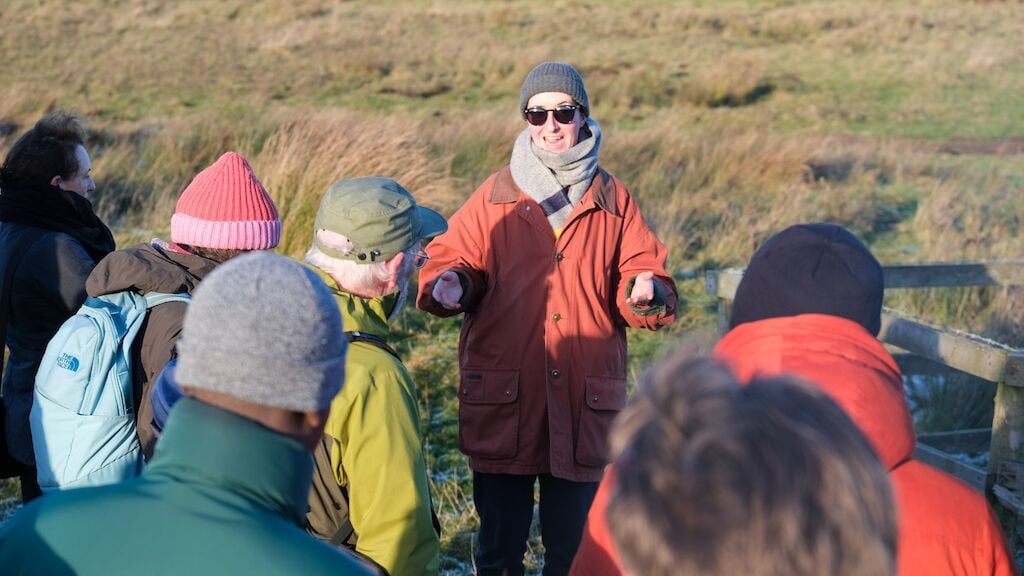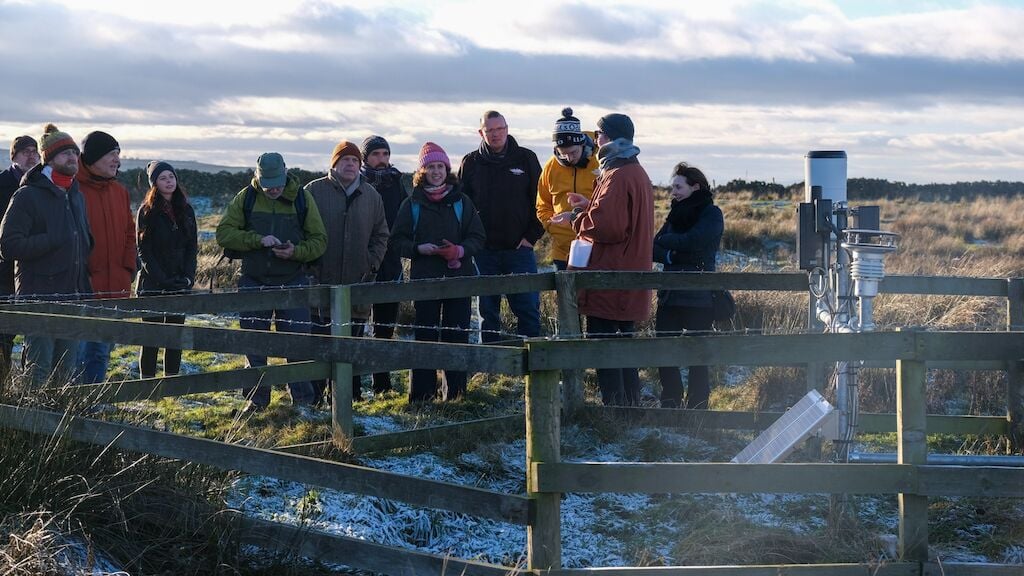To take stock of our progress so far and to learn from other heritage-and-climate-focused initiatives, the Climate Change & UNESCO Heritage project community assembled for a reflective, cross-pilot site gathering at Hadrian’s Wall World Heritage Site in late November 2024.
The local pilot site team, hosted by Newcastle University on behalf of the wider Hadrian’s Wall Partnership Board, welcomed colleagues from North Devon Biosphere Reserve, Fforest Fawr Global Geopark, staff from the UK National Commission for UNESCO (UKNC), and members of our consultancy teams and project Steering Group for an immersive visit to sections of the Wall in Northumberland.
Learning from other on-the-ground projects
Field visits took the group to Magna and Vindolanda Roman Forts, where efforts to understand and interpret localised climate change threats are already underway.
The group was met by experts from the Vindolanda Trust, who showcased how data from innovative environmental monitoring equipment, including the underground monitoring of temperature, PH levels, moisture, and the general preservation potential of the site’s soil, is helping to better understand the links between climate events and the possible risks they pose to sensitive archaeological remains.
The visit demonstrated some of the different ways in which the World Heritage Site is being affected by climate change, whilst also allowing us to think more deeply about how data and technology can be met with on-the-ground expertise as part of a proactive response.
Knowledge exchange across the project community
The site visits were bookended by invaluable collaborative discussions, hosted at Newcastle University. By reviewing the learning experiences Climate Change & UNESCO Heritage has uncovered so far, the group reflected on how recent stakeholder mapping and engagement work, together with on-going, cross-sector data auditing, is beginning to surface new ways to understand the broader stakeholder and data landscape across each UNESCO site. Discussions then considered the potential this offers for creating more joined-up responses to climate change issues.
Work on the Climate Change & UNESCO Heritage project will continue into the New Year, with sharable data catalogues, tools, and case study resources from our three UNESCO pilot sites expected in summer 2025.
The UK National Commission for UNESCO would like to thank David Brough, Mick Atha, Rob Collins and Stelios Lekakis of Newcastle University for coordinating the project visit to Hadrian’s Wall, and to the staff at the Vindolanda Trust for warmly welcoming the project community to their sites.
About Climate Change & UNESCO Heritage
Funded by HM Treasury’s Shared Outcomes Fund, Climate Change & UNESCO Heritage is a pilot project being delivered in partnership between the UK National Commission for UNESCO and the Department for Culture, Media and Sport.
Taking a cross-sectoral and community-led approach, the Climate Change & UNESCO Heritage pilot is working with partners and stakeholders at three UNESCO sites in the UK to co-design, develop and test models of improved joint-working, alongside the production of new tools and templates that will help organisations to analyse and share climate-related data more effectively, and interpret its impact on natural and cultural heritage.









